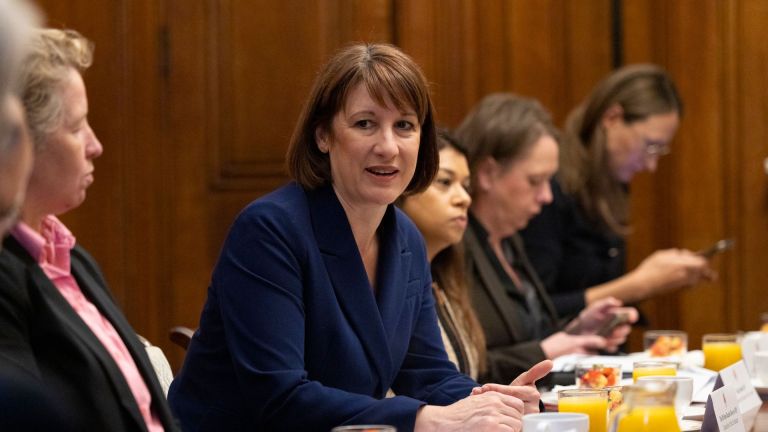Kendall argued that over the last 14 years the DWP has focused almost entirely on the benefits system, and specifically on implementing universal credit, and that “nowhere near enough attention has been paid to the wider issues – like health, skills, childcare and transport – that determine whether people get work, stay in work and get on in work”.
Shelley Hopkinson, head of policy and influencing at Turn2us, said: “For too long, our social security system has failed to recognise the complex needs of long-term sick and disabled people.
“We welcome a fundamental shift away from stigmatising and harmful sanctions, towards more personalised and holistic employment support that genuinely helps people to find work that meets their needs. At the same time, we must recognise that not everyone can work, and the system is there to provide financial security for all.
“The communities we work with at Turn2us tell us that their deep mistrust of the social security system discourages them from accessing the support they need. Rebuilding this trust, tackling benefits complexity, and normalising accessing support must be central to any approach to welfare and work.”
The new government is calling for “employment opportunity unleashed for all” through a devolved approach to employment support.
It will publish a white paper which will outline plans for a new national jobs and career service to help get more people into work, and continue supporting them throughout work.
There will be employment, health and skills plans for people who are out of work, led by mayors and local areas. And there will be a youth guarantee for all young people aged 18 to 21.
“We will empower local leaders and local areas to tackle economic inactivity and open up economic opportunity,” Kendall said. “We will give local places the responsibility and resources to design a joined-up work, health and skills offer that’s right for local people.
“DWP will support local areas to make a success of this new approach. And we will devolve new powers over employment support to catalyse action and change.”
Plans for increased support, and to improve working conditions and pay, were welcomed by organisations. Kendall said that too many people are trapped in low paid, poor quality work. Of those in low in pay in 2006, only one-in-six escaped it a decade later.
Helen Barnard, director of policy at the Trussell Trust, said: “Today’s announcement from the DWP is a positive step in the right direction. Prioritising dignified and accessible support for all and ensuring people can take up decent, secure work are key building blocks to a future where no one needs a food bank.”
She said that an employment support system that focuses on voluntary, specialised services, rather than punitive measures is vital for tackling hardship.
Barnard added: “Ensuring that local plans really do join up services and tackle barriers to work like transport, childcare, poor access to health services, and too few decent, flexible jobs will be vital to making this work. And this must be accompanied by a strategy to ensure everyone can afford the essentials whether they are working or not.”
But there are fears that Kendall’s rhetoric will heighten stigma around benefits, especially for disabled and seriously ill people who are unable to work.
James Taylor, executive director of strategy at disability equality charity Scope, said: “We must make it easier for disabled people who can work to get into work. Making sure nobody is excluded from the world of work is an important ambition, and this drive must include disabled people.
“There needs to be personalised employment support, and the government must not forget that some disabled people are unable to work. While having the opportunity to work is crucial, we also need a positive welfare system which provides the right support for disabled people.”
Kendall said: “People who are economically inactive are not one single group. There will be a few who act fraudulently, and others who say they can’t but they can, but the vast majority face a complex range of barriers which stop them from getting what they and policymakers want – a pathway into paid employment.
“I believe in personal responsibility. Under this government, there will be obligations to engage with support, look for work, and engage with jobs when they are offered.”
The Conservative government had outlined a series of plans for cuts to the disability benefits system to push more people into work, and Labour is yet to confirm whether it would drop these plans.
Ayla Ozmen, Director of Policy and Campaigns at anti-poverty charity Z2K, said: “It’s great to see the government focusing on support rather than sanctions when it comes to helping people back into work.
“But we are still waiting on confirmation that the previous government’s cruel and dangerous proposals to restrict health and disability benefits will not be taken forward. And if the government is really serious about tackling economic inactivity, we need urgent reform of the social security system.”
Universal credit falls short by around £120 each month of the money people need just to buy the essentials they need to survive, according to estimations from the Trussell Trust.
Organisations, including the Big Issue, have repeatedly called for an ‘essentials guarantee’ to be implemented into universal credit to ensure people can afford the basics at the very least. But instead, the Labour government’s focus is around driving people into work.
Ozmen added: “We know that the inadequacy of basic social security levels mean that people struggle to find work because of being unable to meet costs associated with job-seeking, such as buying clothes for an interview, or simply because their time is taken up with trying to manage on such an impossibly low income.
“We also know that the risk built into the system means that some disabled people are afraid to try work in case it doesn’t work out and they are forced to survive on the grossly inadequate standard allowance.
“So whilst the change of emphasis is welcome, we need clear commitments from the government that plans set in motion by the previous government won’t be taken forward and that the inadequacy of universal credit will be addressed.”
Dr Tom Kerridge, policy and research manager for youth homelessness charity Centrepoint, added: “It’s been far too long since young people’s futures were put at the centre of government policy, so it’s no surprise that one in eight are currently not in education, employment or work. The human and economic costs of this are huge.”
Research by Centrepoint shows that Britain loses £8.5bn a year to youth homelessness, with the majority if this due to economic inactivity.
“Many of the young people we work with are desperate to leave homelessness behind and access work or education – but too often there is nothing there to help them,” Kerridge added.
“If we want young people to get into work, training or education then we’ve got to meet them half-way. You can’t punish people into a career or tell them to dream big while not giving them the tools to achieve those dreams.
“This is something we have to get right as a country: it would not only transform the prospects of the next generation of workers, it would help boost the economy too.”
The Big Issue has heard from hundreds of people who have shared “harrowing experiences of proving benefit eligibility” – “a process that’s leaving them in extreme distress, more impoverished and even suicidal”.
Katy Wright, director of Big Issue recruit, said: “Time and time again we see the same barrier in our candidates – a crippling lack of confidence created by years of existing in a benefits system that does not meet their needs. There is a different way possible. In our candidates, we’ve built resilience so they can navigate the barriers to employment and find work that will meet their individual needs – work that sticks.
“We now strongly urge the DWP to push increased jobcentre integration with mental health services. The closer aligned these services can be, the more truly sustainable solutions we’ll unlock for the three million ‘economically inactive’ people without work in this country.”
Do you have a story to tell or opinions to share about this? Get in touch and tell us more. Big Issue exists to give homeless and marginalised people the opportunity to earn an income. To support our work buy a copy of the magazine or get the app from the App Store or Google Play.









